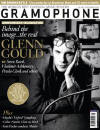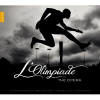Texte paru dans: / Appeared in:
*

GRAMOPHONE (09/2012)
Pour s'abonner /
Subscription information
Naïve
V5295

0822186052952 (ID218)
Consultez toutes les évaluations recensées pour ce cd
~~~~ Reach all the evaluations located for this CD
Reviewer: Richard
Wigmore
Chryssicos with a new pasticcio for London’s Olympic year
The operatic pasticcio – literally ‘hotch-potch’ or ‘pudding’ – was fair
game for 18th-century satirists. Unfazed, impresarios and composers, Handel
and Vivaldi among them, were all too happy to concoct ‘new’ operas from
readymade components – a kind of musical Ikea. Capitalising on the Olympics
craze, the Venice Baroque Orchestra’s director Andrea Marcon et al have
followed suit with this self-assembly opera based on Pietro Metastasio’s
L’olimpiade, a libretto few Italian opera seria composers could resist.
The story uses the ancient Olympic Games as a background for love rivalry, improbable deceptions, narrowly averted patricide and incest, and the eventual triumph of youthful virtue (represented by the pairings of Licida and Argene, Megacle and Aristea) over the curses of the older generation embodied by Aristea’s father King Clistene. Into the mix go arias (plus one duet and a couple of brief choruses) by 16 composers of Olimpiade operas, ranging from Caldara and Vivaldi in the 1730s to Cimarosa and Cherubini in the 1780s. The time span involved rules out any stylistic coherence; and, with no interlinking recitative, the plot is impossible to follow from the music alone. Still, if you treat the discs as a succession of concert arias, there is plenty to enjoy here. In several numbers the frills and fripperies of midcentury galanterie hardly seem adequate to the character’s predicament. But there are impressive bravura arias by Hasse, Jommelli and the once-famous, now virtually forgotten Davide Perez. The Cretan Princess Argene has some of the finest music, including a tender idyll, with pastoral flutes, by Sarti, and an impassioned minor-key aria by Traetta. Most memorable of all is Vivaldi’s dreamy lullaby for Licida, ostensibly sung to his friend Megacle as he fantasises about Aristea.
Directed, appropriately, by the
Greek harpsichordist Markellos Chryssicos, the Venice Baroque Orchestra play
with their trademark zest and colour. The strings seethe and crackle in the
obligatory ‘vengeance’ and ‘shipwreck’ arias. If the soloists can be wordshy,
all sing with skill and stylistic understanding. Although Megacle’s arias
sometimes lie a shade low for her, Romina Basso impresses with her fiery
temperament and scintillating coloratura. Franziska Gottwald, likewise
occasionally stretched in low-lying music, catches the drowsy sensuality of the
Vivaldi lullaby. As King Clistene, Nicholas Phan fields a compact, mellifluous
tenor; and Spanish soprano Ruth Rosique – a name new to me – sings with charm
and spirit, not least in a pretty minuet song whose opening Piccinni cribbed
from Gluck’s Orfeo. The palm, though, goes to Karina Gauvin’s Argene,
dulcet-toned in her pastoral idyll, slyly witty in her cynical ‘that’s love for
you’ aria (Perez), and finding a new depth and intensity for the Traetta aria.
Recording and presentation are first-rate, with texts and translations and an
eloquent essay in defence of the pasticcio by Reinhard Strohm.
Cliquez l'un ou l'autre
bouton pour découvrir bien d'autres critiques de CD
Click either button for many other reviews


